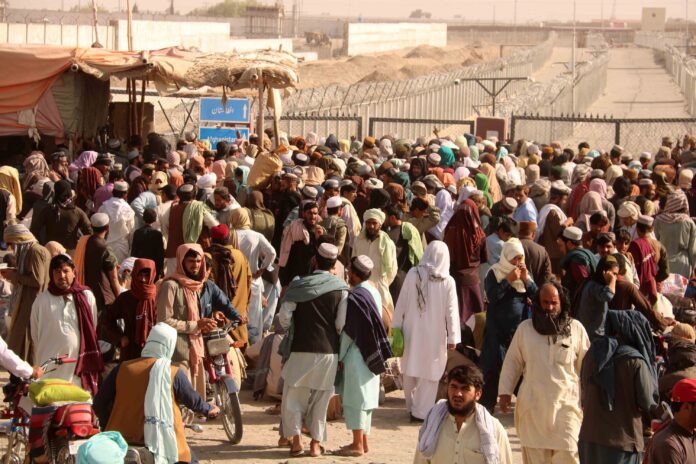In its battle against illicit trade and handling of Afghan migrants, Pakistan faces potential socio-political tensions that test both internal harmony and international relations.
In its resolute efforts to curtail illegal trade practices, Pakistan is zeroing in on one of its most pervasive issues: smuggling. Preparing to arrest over 300 individuals associated with the clandestine gold business, the authorities have recently been drawing on extensive investigative work. This includes both the collection of residential details of those suspected and the analysis of phone records from key businessmen in the industry.
But gold smuggling is just a part of a broader puzzle. The Federal Investigation Agency (FIA) has been on the front lines, carrying out a staggering 172 raids across the country. These aggressive efforts have culminated in the apprehension of 239 suspects, and the initiation of 177 legal cases against those involved. These operations by FIA haven’t just been about making arrests; many establishments, including shops and buildings associated with illegal activities, have been sealed. The seizures from these raids have been substantial: goods, including domestic and foreign currency totaling an impressive 671.6 million rupees, were confiscated. Additionally, numerous receipts and mobile phones, which could serve as evidence, were retrieved from those arrested. The main charge against these individuals revolves around their participation in unauthorized currency exchange businesses.
There’s another layer of concern in the Khyber Pakhtunkhwa region, particularly related to its property market. Before diving into anti-terrorism operations, security agencies are sharpening their attention on unregistered property dealers. These dealers have been bypassing essential standards, notably in Peshawar where the Tenancy Act is largely ignored. A disconcerting 95% non-compliance rate with the Tenancy Act signals a significant oversight. This lax regulation has inadvertently allowed individuals to settle in the city without thorough documentation. To add to the complexity, traditional business owners in Peshawar, especially in neighborhoods like Hayatabad and its adjacent rural areas, have delved into property dealings without any formal registration.
Meanwhile, the situation with Afghan refugees, especially in the capital city of Islamabad, is becoming increasingly tense. In a joint operation, the Capital Territory Police, working with other specialized agencies, have detained 800 Afghans. Half of these individuals were subsequently released after they showed satisfactory proof of residence. However, the remaining 375 are currently in custody due to the unavailability of proper identity documentation.
Pakistan’s intensified efforts to suppress illegal trade and regulate the influx of Afghan migrants underscore its commitment to internal stability and security. Nevertheless, the sheer scope and intensity of these efforts could inadvertently amplify existing complexities. On one hand, a rigorous crackdown may deter illicit activities, sending a robust message to offenders. Yet, the same measures may also cast an overbearing shadow on innocent individuals, possibly exacerbating social tensions. Furthermore, the expansive measures in dealing with Afghan migrants, if not handled with care, could strain bilateral relations with Afghanistan and shape international perceptions. As Pakistan navigates this path, it is imperative that it ensures a nuanced approach, weighing the potential socio-political repercussions against the desired outcomes.




